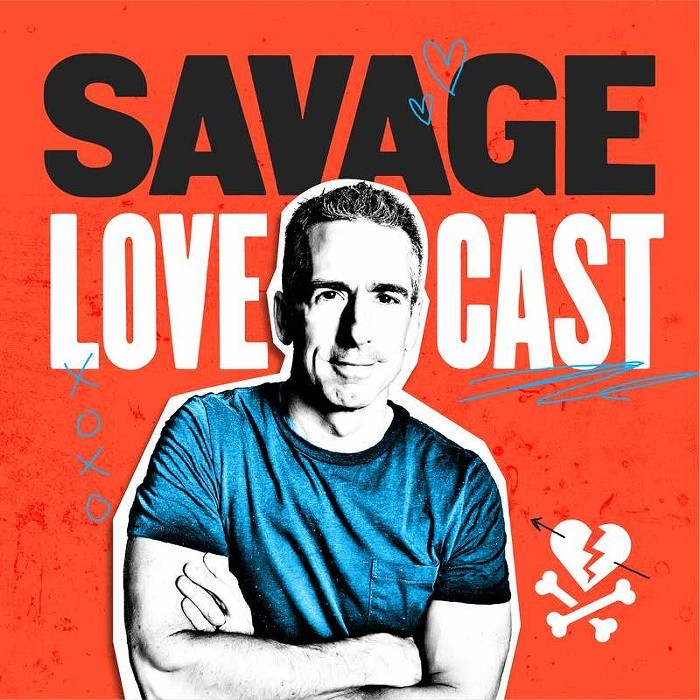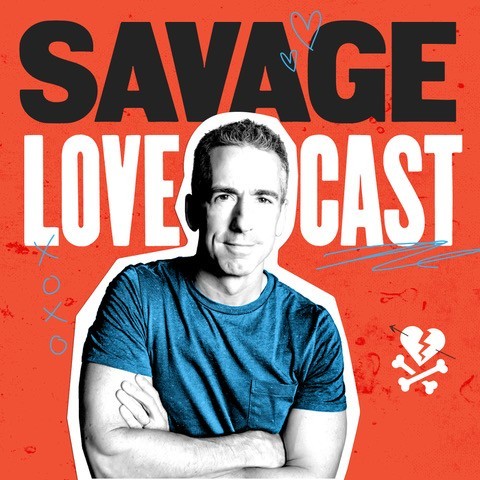
This week Senator Kamala Harris became the latest Democrat to officially announce her candidacy for president, following Senators Elizabeth Warren and Kirsten Gillibrand, as well as Representative Tulsi Gabbard. This is already a record-breaking number of women running for the highest office in the U.S., and with a year-and-a-half before the Democratic nominee is decided, that number will surely go up.
Curious about whether the women who’ve announced so far consider themselves feminists, I reached out to their camps. Elizabeth Warren’s press secretary said, unequivocally, yes, and sent me a video of Warren answering that same question. “You bet,” the Senator says. “I call myself a feminist every chance I get.”
While the other campaigns didn’t respond to my question, it seems safe to assume that the candidates would call themselves feminists as well. Kirsten Gillibrand recently tweeted that the future isn’t just female, but intersectional. Kamala Harris and Tulsi Gabbard have also expressed their support for feminist movements, including #MeToo. Besides, any Democratic women who reject the feminist label would kill her campaign before it even started. This may be why it’s especially galling that all four candidates signed a piece of legislation that is making life harder and more dangerous for some of society’s most vulnerable women.
Last spring, Congress passed and Trump signed a bipartisan piece of legislation known as SESTA/FOSTA, which was widely advertised by its proponents as a way to fight human trafficking. What the legislation, which was co-sponsored by Sens. Harris and Gillibrand, actually did was amend the Communications Decency Act, which, until last year, prohibited websites from being held liable for content posted by the site’s users. This meant, for example, that if someone was selling poached ivory in the comments section on Slog, The Stranger wouldn’t be held criminally liable for it.
SESTA/FOSTA changed this, and last year, prominent sex-work marketplaces either shut down voluntarily, like Craigslist’s Casual Encounters section, or, like Backpage, were seized and shut down by the Feds. This is exactly what Harris intended.
“Victims of sex trafficking should be protected and have the ability to seek justice,” she said in a statement after SESTA passed in the Senate. “That’s why, from my earliest days as a prosecutor, I’ve led the fight against Backpage and other sex trafficking platforms.”
The bills were controversial in the tech world, where they were seen by many advocates as a threat to the free and open internet. But some big tech companies signed on. According to a report by the New York Times, Facebook—trying to curry favor with SESTA co-sponsor Sen. John Thune, a Republican who’d accused the company of suppressing conservative news on its platform—broke ranks from other tech companies and supported the legislation.
There was one group, however, that has roundly condemned SESTA/FOSTA, and that’s the group most impacted by it: sex workers.
Sophie has three degrees and a white-collar job. She’s also a sex worker, and while she doesn’t work on the streets, as a teenager, she did live on them.
“I spent 15 to 17 homeless,” she told me. “It can be a crushing mentality. You feel hopeless. You feel like no one cares about you.”
For the past two-and-half-years, she’s been doing outreach work to homeless people and sex workers in Seattle, going to high-traffic areas and handing out condoms, Narcan, food, clothing. She does this on her own, without the support of any kind of group or nonprofit organization. When I asked her why she called the question “inane.” To her, the answer is obvious: People need help; she’s giving it.
“The system isn't in place to help you. It's in place to keep you where you are,” she says. “People who are homeless will get a littering ticket from the police. They don't have an address. The ticket goes somewhere, they don't know where, then there's a court date that they don't know about, and they don't have any money to pay the ticket anyway, and then there's a bench warrant, and then they get arrested. It's this cycle and it’s insane.”
Most of the people Sophie works with are sex workers, and with Backpage and other sites shut down, the number of sex workers on the streets has spiked. This puts them at risk. Instead of screening and vetting clients in advance—and instead of having a network to blacklist bad clients—they’re meeting them blind. And the extra competition isn’t exactly welcomed.
“Of course the girls who were on the street before are not like, 'Oh, more friends to come work on my corner,’” Sophie says. “They're like, 'Bitch, I'm gonna cut you. Get off my corner.' It's a very difficult situation. A lot of people are really struggling.”
Working on the streets can be particularly dangerous for trans sex workers. “If you're a trans sex worker and you advertise online, people who contact you know what they’re getting,” Sophie says. “But if you are on the street and you get in the car with somebody, that person may be like, 'You have a dick? Now I need to beat the shit out of you because my manhood is threatened.'"
Maggie McNeill, a sex worker, writer, and public speaker, has been doing sex work off and on since the mid-’80s. She was there before the rise of the internet, through the rise online advertising, to now, post-SESTA, as inexpensive online advertising largely disappeared.
McNeill’s first jobs in the industry were working with escort services, which arranged her dates and took a 30 percent cut for themselves. This didn’t always work out. “When I started working, the person who ran the service was abusive,” she told me. McNeill started an agency of her own, but “If there were no good agencies in town," she says, "a girl was stuck either working for a bad one or putting an ad in the back of the local alt-weekly.”
Many alt-weeklies were often financially supported by sex workers advertising their services in their back pages. But the internet changed that. First came Craigslist, which offered free classified ads, and, by 2000, was expanding into cities across the U.S. Then, in 2004, the owners of New Times Inc., a conglomerate of alt-weeklies, started Backpage. The site soon grew larger than the papers themselves, and it allowed sex workers to go independent. Instead of relying on an agency, or on pimps, they could put up an ad for free or a small fee and set up their own businesses. When the websites disappeared, these sex workers, McNeill says, were “up shit creek.”
“All of a sudden, all the advertising sites that were free or low cost went down,” she says. “A lot of girls were stuck. It's darkly humorous, because as soon as this happens you start seeing news articles about how there's been an explosion of prostitutes on the street. It's like, yeah, because you kicked them off their ad platforms. Their rent doesn't go away because you decided to score political points.”
One former sex worker, Lauren, told me that after 12 years doing erotic massage, SESTA essentially shut her business down. When Backpage shuttered, she lost all of her clients, and, soon after, her office space and her apartment. At the age of 53, she moved back in with her parents. She’s now delivering food, applying for jobs, and considering going back to school to get a certificate as a medical technician. It’s not how she imagined life in her 50s, but with parents to fall back on, she knows she’s one of the lucky ones.
It’s hardly unusual for feminists and anti-trafficking advocates to oppose sex work and sex workers. For decades, some feminists have claimed sex work is inherently exploitative and that sex workers are inherently victims. This includes famed feminists like Catherine MacKinnon and Andrea Dworkin, who campaigned against pornography and prostitution. This led to a strange alliance in the 1980s when feminists joined forces with conservative anti-porn crusaders like Edwin Meese, who served as Attorney General under Ronald Reagan.
In 1985, Meese commissioned a report on the dangers of porn. To come to its conclusion, the 11-member Meese Commission “watched dozens of pornographic videos, perused hundreds of magazines, listened to recorded dial-a-porn conversations and took field trips to sex shops,” writes Sean Braswell in OZY. “They also heard around 300 hours of testimony from more than 200 witnesses, everyone from FBI agents to former prostitutes to victims of sexual abuse.”
The commission—which included religious leaders as well as constitutional scholars, psychiatrists, and media executives—found that porn was a danger to society, and the feds went about cracking down on businesses that sold it. Penthouse, Playboy, and other nudie mags were taken off shelves all across the U.S., a move some feminists and family values conservatives celebrated—just as, three decades later, these same interest groups celebrated the passage of SESTA and FOSTA.
But many people who work in the sex industry disagree with the idea that they are all victims. “That's a very misogynistic, paternalistic viewpoint,” McNeill says.
Sophie agrees. “I'm 36-years-old and I have 3 college degrees,” she says. “If you are going to tell me I don't have agency and I'm not smart enough to make my own decisions, you are being ridiculous.”
While there are women who do sex work because they have no other choice, McNeill and Sophie say they do it because they enjoy it. They make their own hours, choose who they want to see, and they feel like they provide a valuable service. Sophie started to cry when telling me about a client she’d seen the night before who has cancer.
“We just sat there and talked,” she said. “He was so reassured. It was really meaningful. You don't hear about that kind of work we do in the press. All you hear about is the tawdry, prurient b.s.”
There are, to be sure, women and girls who are trafficked into sex work, but it’s difficult to know precisely how many because so much sex work is covert. It’s somewhat easier in New Zealand, where sex work been decriminalized since 2003, and a 2005 survey found that only 3 percent of sex workers were underage.
For those who are trafficked, there is no evidence that shuttering online advertising avenues saves victims. In fact, many sex work advocates argue that if anything, shuttering these sites just make trafficking harder to uncover: Backpage and other sites worked with law enforcement when they suspected an advertiser was trafficking or using underage girls. Without the ads, the avenue to find actual victims disappears too.
The consensus that SESTA and FOSTA did little good and a lot of bad is near universal among sex workers. And yet, sex-proclaimed feminists continue to push this narrative, including Senators Warren, Harris, Gillibrand, and Representative Gabbard. None immediately responded to my request for comment on SESTA and FOSTA, but perhaps if they actually talked to some sex workers, they’d get a sense of what their legislation has accomplished.
When I asked Lauren, the former sex worker who was forced to move in with her parents after Backpage closed, how she feels about these women in office, she said, “I've got very mixed feelings. I admire and like those women but wish I could get in front of them and make them understand exactly what they did and how it helped absolutely no one. They just passed the law and moved on with their lives. Other people have to deal with the repercussions.”



















